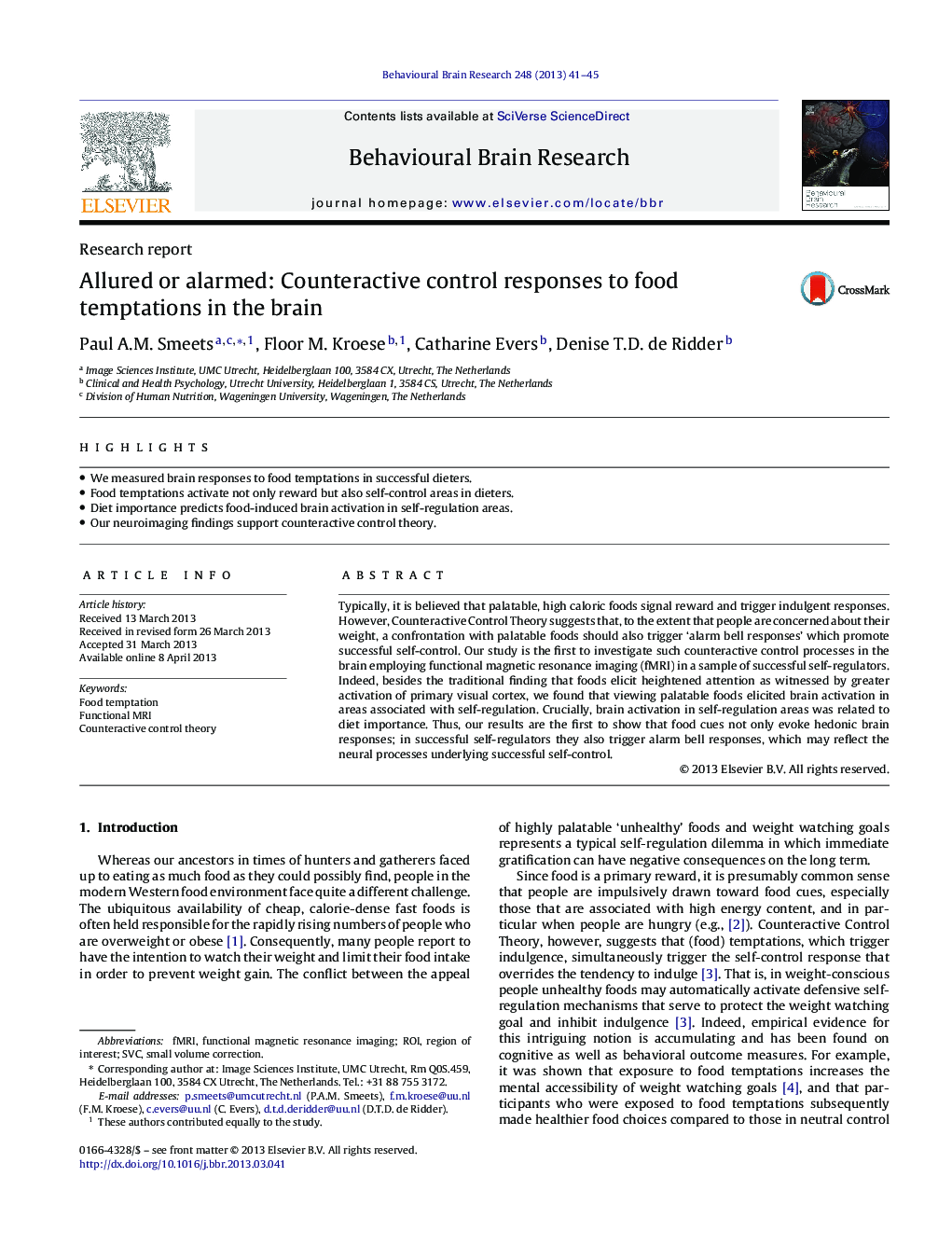| Article ID | Journal | Published Year | Pages | File Type |
|---|---|---|---|---|
| 6259132 | Behavioural Brain Research | 2013 | 5 Pages |
â¢We measured brain responses to food temptations in successful dieters.â¢Food temptations activate not only reward but also self-control areas in dieters.â¢Diet importance predicts food-induced brain activation in self-regulation areas.â¢Our neuroimaging findings support counteractive control theory.
Typically, it is believed that palatable, high caloric foods signal reward and trigger indulgent responses. However, Counteractive Control Theory suggests that, to the extent that people are concerned about their weight, a confrontation with palatable foods should also trigger 'alarm bell responses' which promote successful self-control. Our study is the first to investigate such counteractive control processes in the brain employing functional magnetic resonance imaging (fMRI) in a sample of successful self-regulators. Indeed, besides the traditional finding that foods elicit heightened attention as witnessed by greater activation of primary visual cortex, we found that viewing palatable foods elicited brain activation in areas associated with self-regulation. Crucially, brain activation in self-regulation areas was related to diet importance. Thus, our results are the first to show that food cues not only evoke hedonic brain responses; in successful self-regulators they also trigger alarm bell responses, which may reflect the neural processes underlying successful self-control.
